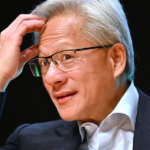Martinet keeps her eyes peeled for candidates who go beyond listing their AI skills on their resume—she actually loves it when talent uses it in the hiring process. During interview rounds when applicants showcase their skills through mini projects or tests, the executive values prospective hires who enhance their assignments with the tools. Leveraging AI in tandem with their human capabilities feeds back into the killer combination the software giant, which has a market cap of $141 billion, is looking for.
“[If] someone comes to me and they’re like, ‘Hey, I made you this content for your social media channels, and I used AI as part of this.’ I would say, ‘That’s excellent,’” Martinet explains. “If it’s, ‘Hey, I’m interviewing for a communications job, and I did a first draft, and then I ran it through AI, and it suggested some tweaks,’ I think that would be excellent.”
“If someone hasn’t used [AI], it’s not a hard ‘no,’ but they’re going to have to use it in their job, and so the sooner they can embrace it, the better. Because that’s what we’re doing—it’s here and it’s changing how we work,” Martinet continues.
The Adobe executive says adaptability is key, and that successful people will be those who take advantage of ever-changing technology.
“What are the new things that are unlocked from this technology that we haven’t even dreamed of yet?” Martinet adds. “The people who dream that up are creating the future around this.”
Adobe isn’t the only massive tech company letting its job applicants use AI in the hiring process. AI giant Anthropic, which is valued at $61.5 billion, now allows candidates to leverage the advanced tech after a change of heart.
“While we encourage people to use AI systems during their role to help them work faster and more effectively, please do not use AI assistants during the application process,” the policy read. The business stated it wanted to better assess talent’s “non-AI-assisted communication skills” without help from the tools. But by the time summer came around, Anthropic did a massive U-turn on its policy.









